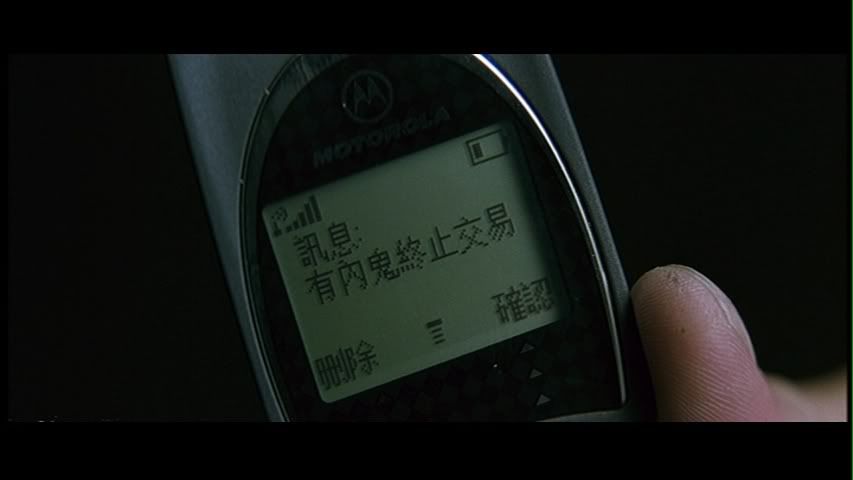
Cell phone mind games. Cue Admiral Akbar: IT'S A TRAP!
Before Martin Scorcese took it and shook it and won ten billion Oscars with it, the story of double agents and mixed identities that was Muo gaan duo (better known as Infernal Affairs, later Scorcesified into The Departed) was but a simple tale of two very good-looking morally ambiguous double agents.
One man was Yan (Tony Leung Chiu Wai), known to wuxia fans as that bad-ass Broken Sword from Zhang Yimou's Hero. Here Leung has shed his long hair and long flowing robes but retained his quietly brooding demeanor and knack for getting into scraps. Yan is an undercover cop who, for ten long years, has worked his way up in the maniacal Sam's (Eric Tsang) criminal organization. He's a fake mobster and he's tired.
His counterpart is Lau (Andy Lau), again known to wuxia fans as that bad-ass Leo from Zhang Yimou's House of Flying Daggers. Lau may have also shed the long hair and dagger in his back, but he's kept his icy straight-laced demeanor and knack for being creepy. Lau is a gangsta who, for ten long years, has worked his way up the noble Wong's (Anthony Wong) police force. He's a fake policeman and he wears nice, crisp suits very well.
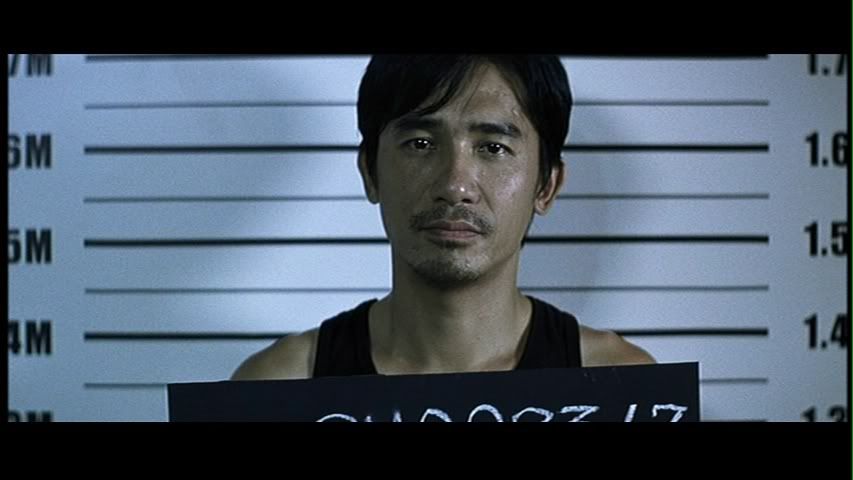
Yan is fine.
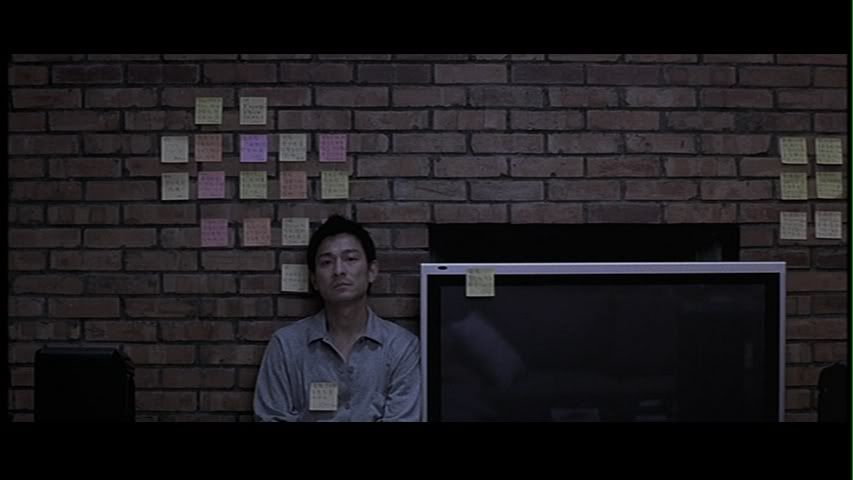
So is Lau. Who do we root for?
Confused? It's not so terrible: two double-agents, like mirrors of each other, working away at each other's employers. The real confusion (and fun) comes in the moral ambiguity and philosophical queries. We're not talking about their fineness, but rather how living this life of lies is wearing away at their emotional cores. Because if you do X in the name of Y, are you X or Y really? No, really really? This is all fine and well for Lau, who, after living in the sleek, shiny world of police enforcement, where pretty girls bring him tea and everyone has a nice haircut, he's starting to get a feel for this whole Being Good thing. Poor Yan, on the other hand, is falling apart as he falls further and further into criminal depths, and he's desperate to get out.
The movie implicitly and explicitly asks the big question: is Yan a good or bad man? What about Lau? Things are further complicated when the mob boss and police chief, like two chess kings, realize they have a mole in their organization and (in delightful irony) assign their mole to find the mole. Meanwhile the moles are really much more interested in finding the mole in the other organization, the one they really care about.
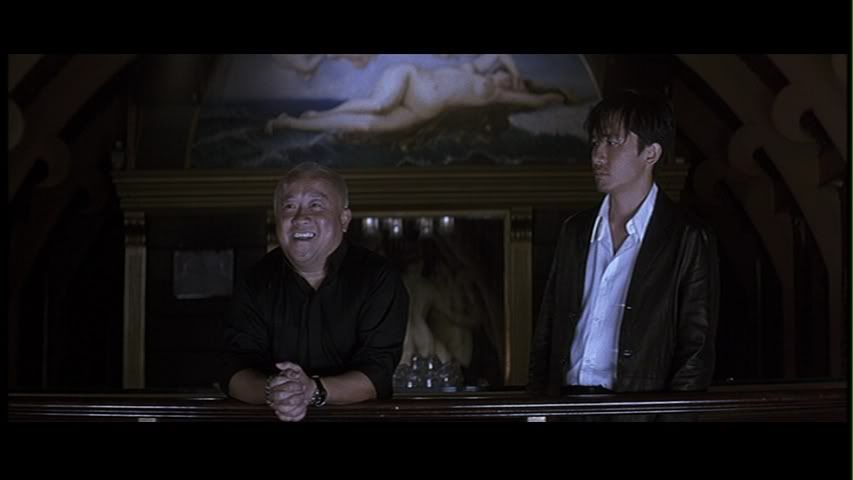
Boss, I'm confused.
More confused? Don't worry about it. The movie is slick and fun and speedy. When you start to get lost, a character helpfully explains a plot point. New moles appear. A lot of the action revolves around receiving and making cell phone calls, though, for the bloodthirsty, there are also the requisite crime thrilled scenes of mob violence. The two leads are excellent, partly because they look the parts of the good-but-grimy versus evil-and-slick. They're also quite well-suited; Lau, in particular, is particularly effective in the ending twist since, while the film presumably delivers a neat emotional finish, we can never be quite sure as he just looks so, well, morally ambiguous. Leung is his usual charming self, where it's difficult to believe he's actually turning bad, even as he snorts that last line of cocaine (see Wong Kar Wai's 2046 for further examples).
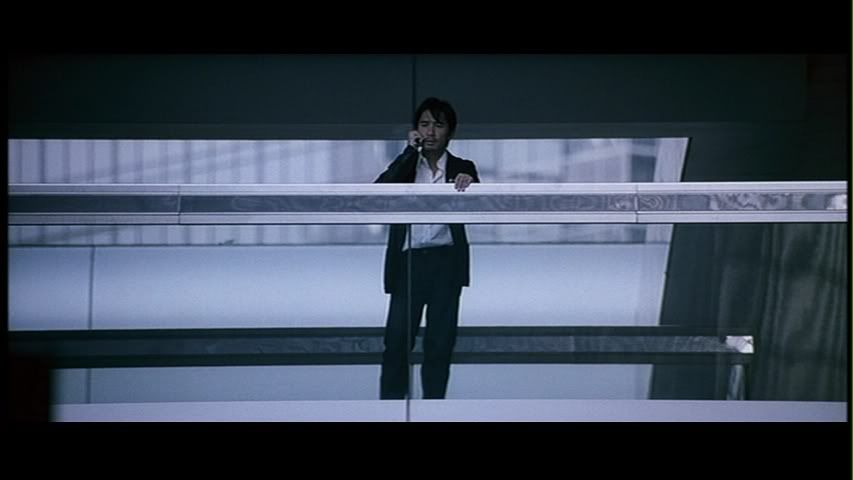
Check-mate! Mwahahaha...
We at the PPCC are not fans of the police-mobster genre, but we still enjoyed the twists and turns of this kooky movie. While less stylish than a similarly ambiguous and surprising tale such as Oldboy, it's also (thankfully) much less violent and hence easier on the gullet.
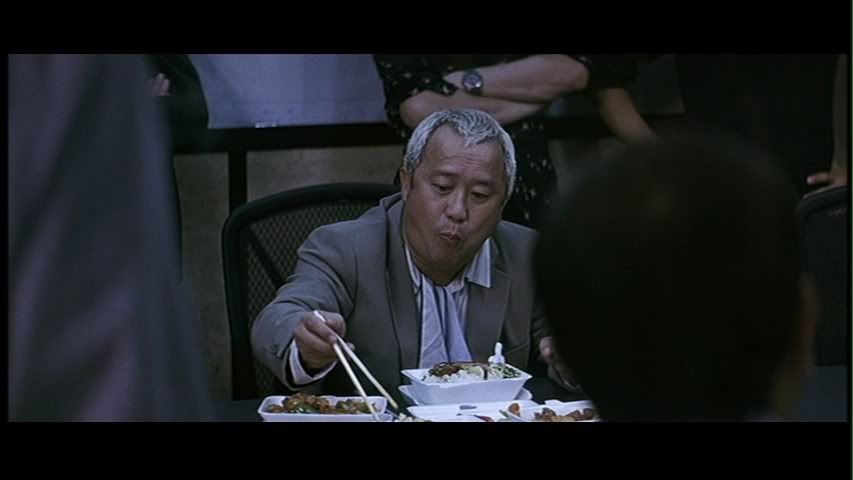
Hungry? For your looooove...


1 comment:
I saw this about the same time I discovered 'Hard Boiled' & 'Old Boy'. The West can put their pretty stars in their remakes but this movie absolutely rocks. Don't get me wrong, I really enjoyed 'The Departed' but felt the original was much superior. And Marty finally getting the Oscar for his efforts? Let's not pretend it wasn't a make up award for 'Goodfellas', 'Raging Bull', 'Taxi Driver' or the vastly underappreciated 'King of Comedy'.
Post a Comment